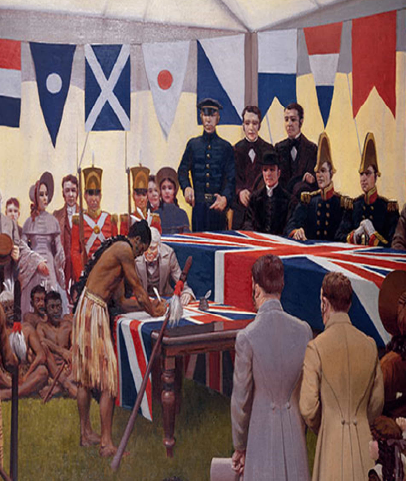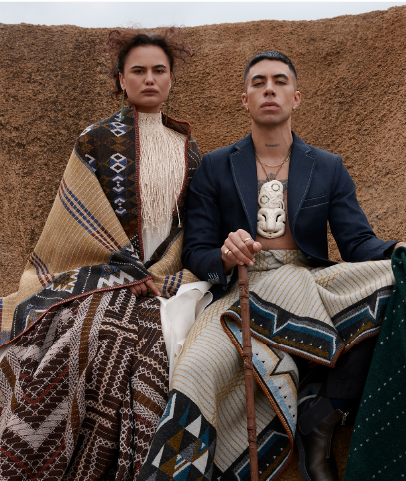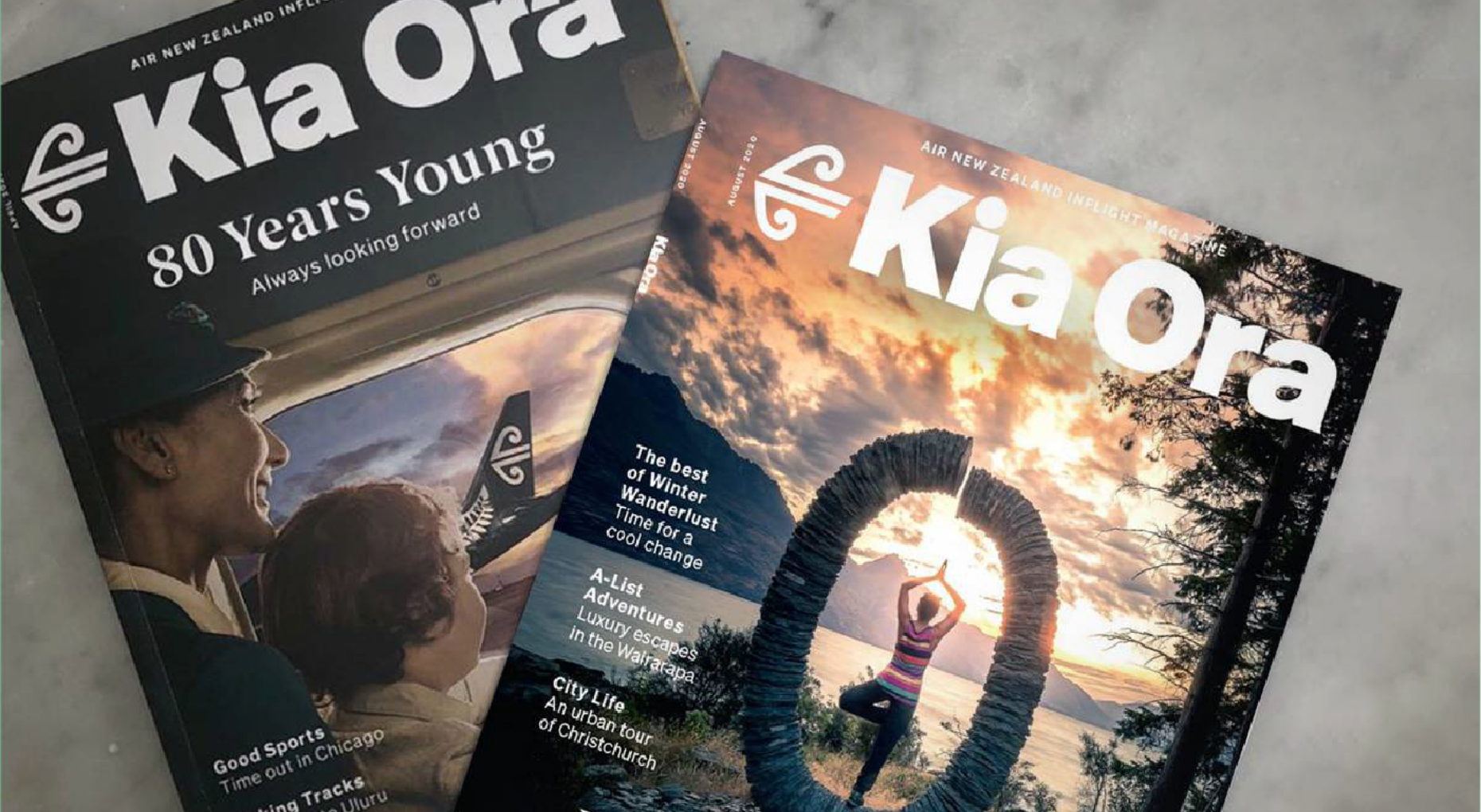
In 2019 Air New Zealand was challenged for attempting to trademark their masthead “Kia Ora.” It was called a disgraceful act of cultural appropriation by some Māori voices, leading to Air New Zealand withdrawing their Trade Mark application. So was this a great win for Māori cultural guardians, or a step backwards for Māori aspirations to normalise and revitalise te reo Māori?
On the one hand, it raises an eyebrow when an organisation would refuse to hire a person with a Māori cultural tā moko tattoo, but want to trademark Kia Ora as part of their brand. That Air New Zealand changed their stance on both, only after a public outcry, reveals the concern for Māori.
This is a genuine concern and one that plays out time and time again, with Māori values suppressed and diminished, while the dominant culture extracts the parts of it that has an exploitable economic value.
But before we get out our taiaha and rush to the closest Air New Zealand customer service desk, let’s look at the other side.
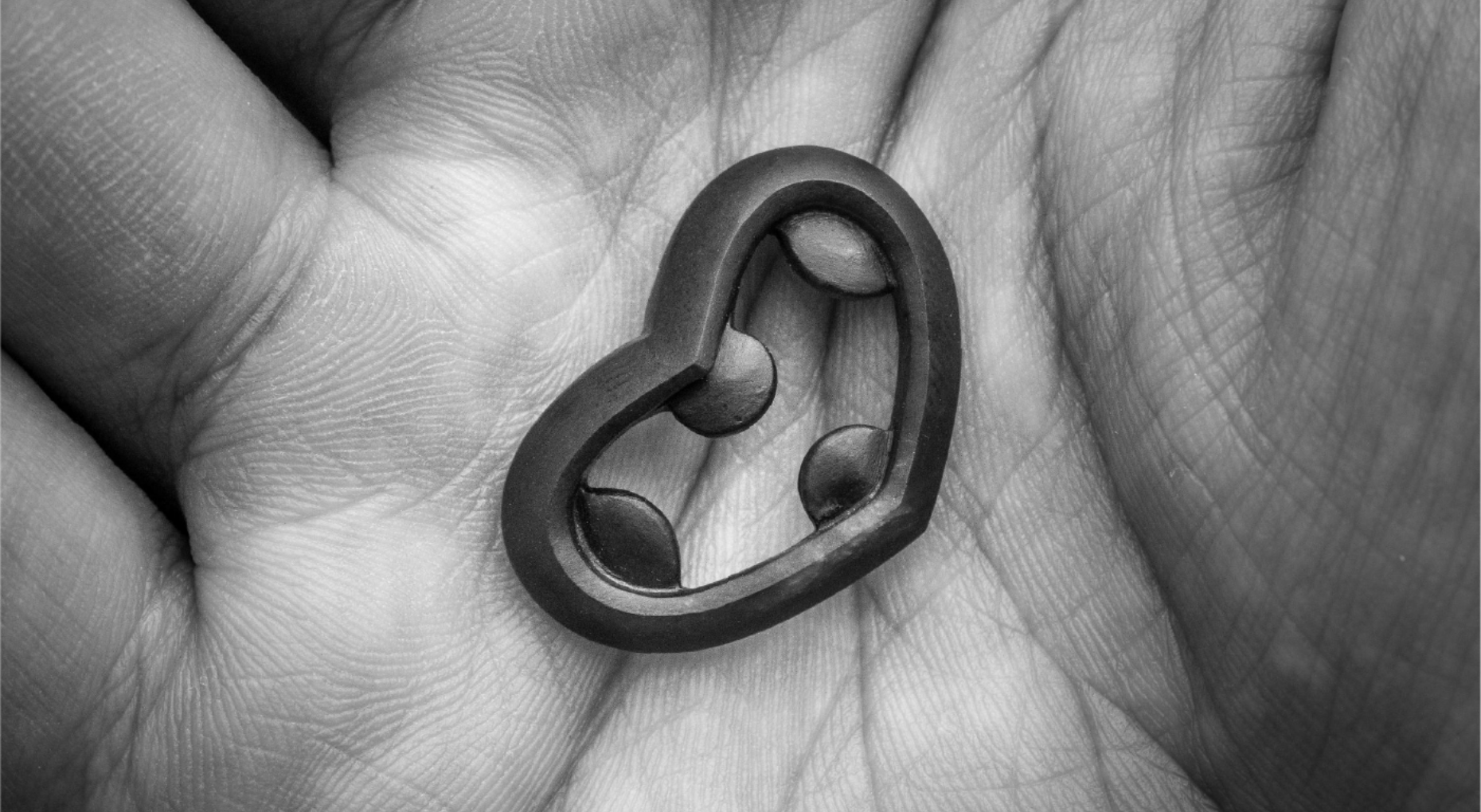
Air New Zealand is doing great things to advance te reo Māori as an official language of New Zealand. Millions of passengers hear te reo Māori every day on their airline and in their marketing. That permeates into our national consciousness. It shifts paradigms, opens hearts and breaks down barriers. We should encourage more of this from all businesses.The trade mark application for Kia Ora magazine can be seen as a continuation of this work. Would Māori be happier if every visitor to New Zealand was reading “Hello” magazine? How lame would that be!
So let’s explore three key principles for how organisations can incorporate culture, without the negative aspects of misappropriation.
Despite the surge in people interested in learning te reo Māori, it is in a state of decline, with only 6,000 people able to speak it fluently. Language experts have defined five key principles to revitalising te reo Māori. For this article, I have focussed on only two: Mana and Mārama Pū and added one of my own, Manaakitanga. These principles can guide a movement to elevate Māori culture as a valuable taonga for all New Zealanders.
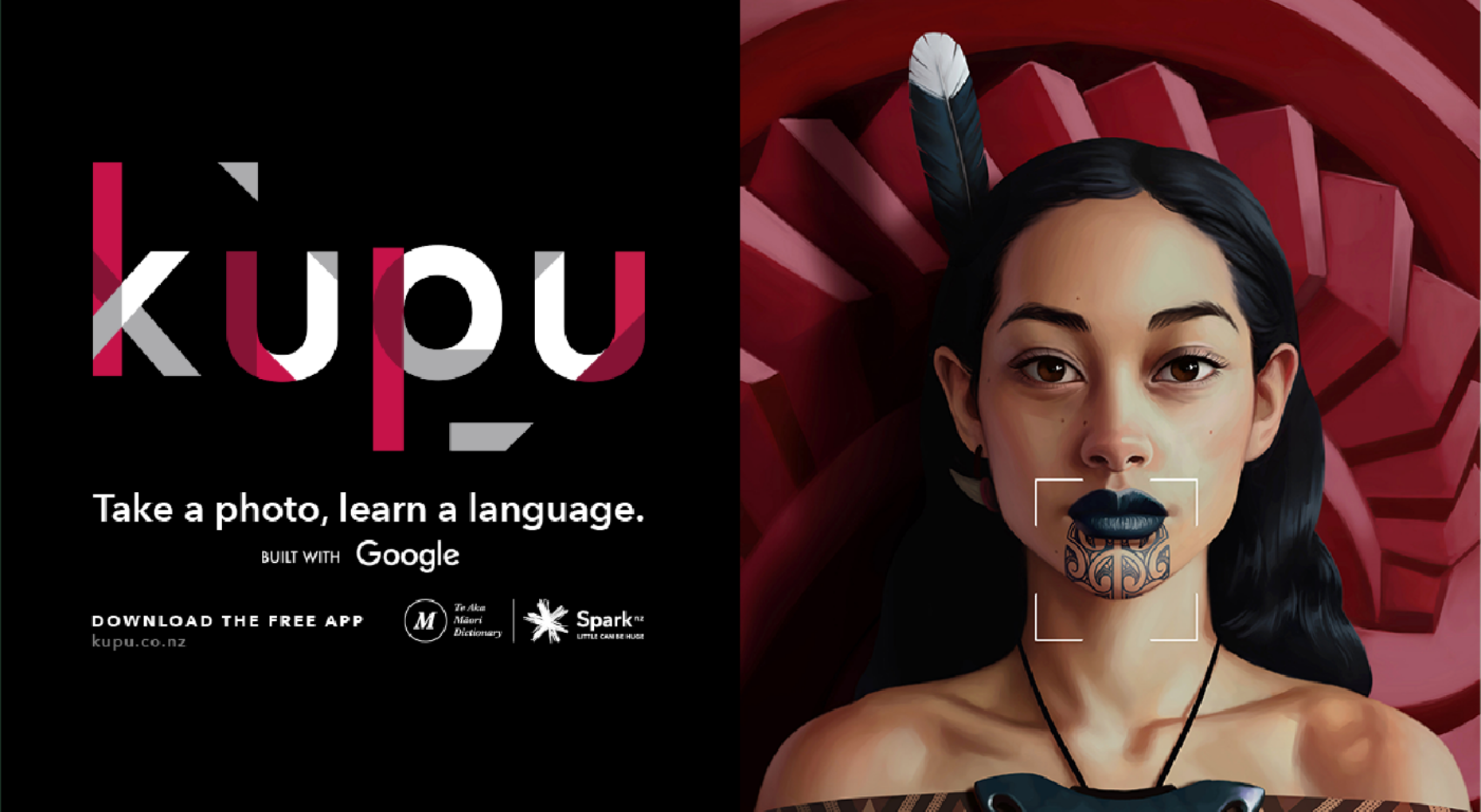
When Air New Zealand staff pronounce kia ora correctly and with enthusiasm, it raises the mana of the language for both the speaker and the listener. And just as Hawaii welcomes us with an affectionate ALOHA, having our national carrier call their in-flight magazine Kia Ora, does good for the mana of te reo Māori at home and abroad. This creates an acceptance of speaking te reo Māori anywhere.
We need this acceptance and large corporate companies have the resources and influence to raise the mana of te reo Māori. When we enhance mana, we add value. We give back
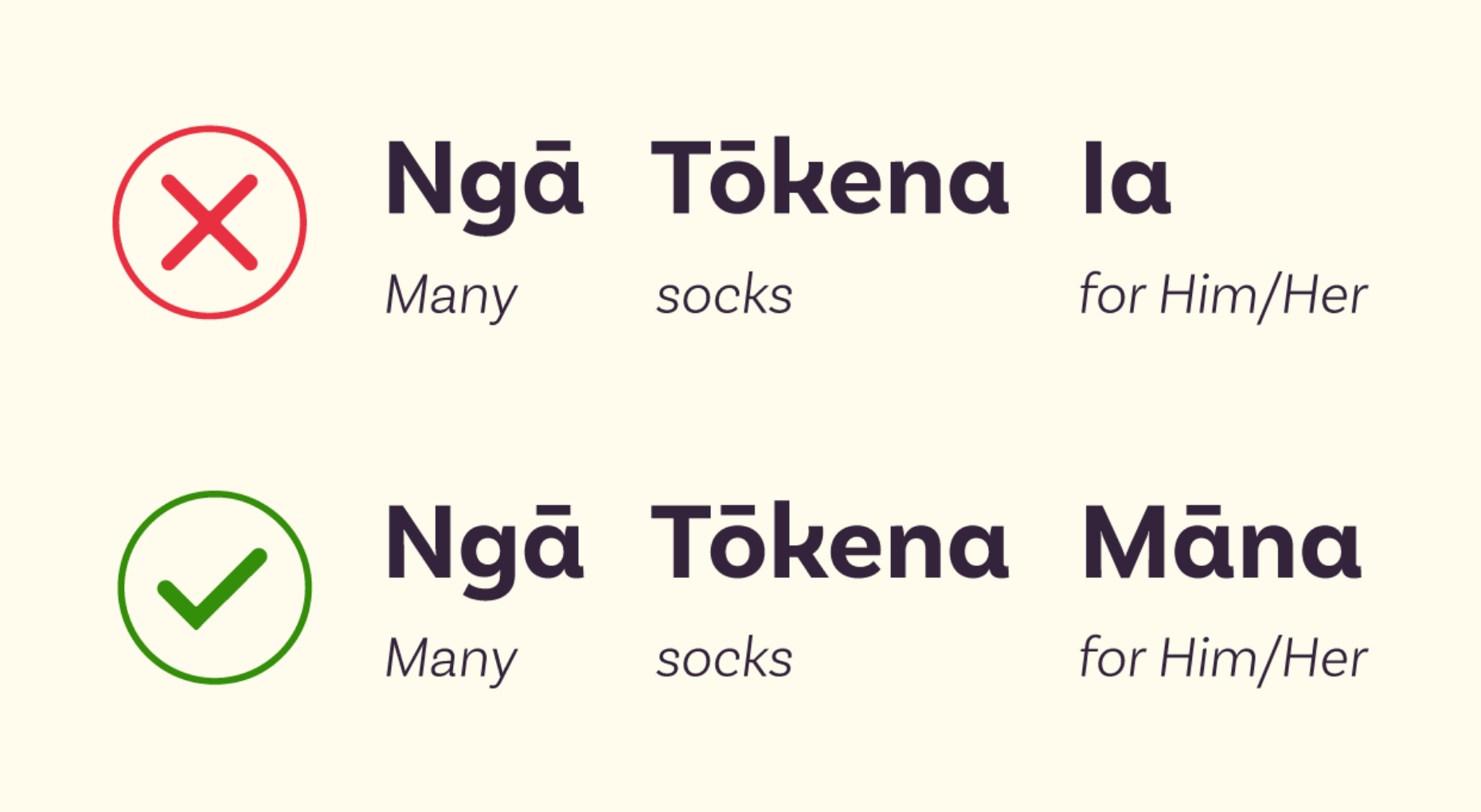
On the other hand, Fly was approached by a prospective client who had picked words out of a dictionary for their business name, “Ngā - Tōkena - Ia, thinking it translated to “Many socks for him/her.” The actual translation is closer to “That Person Is Many Socks.” Despite us advising the client that they had an incorrect te reo Māori name, they decided to retain it. How does this raise the mana of te reo Māori in the minds of all those who hear a non-sensical application of it? Where there is no care, there is no mana.
Māori have been asking politely and now fervently to help the language survive by helping it be used correctly. As more businesses see the economic value and feel good vibes of using te reo Māori, the mana of the language can be enhanced or diminished by the care taken. So how do we take care?
Aligned to the principle of mana is that of mārama pū, the principle that one considers all the speakers and listeners thoughts, feelings and attitudes to ensure their mana is enhanced.
A wellington store received a stiff bevy of antagonism from some sections of the Māori community, accusing them of cultural misappropriation by calling their leather goods store, Huruhuru. The argument being that huruhuru means pubic hairs, showing the ignorance of the owners and their lack of cultural awareness when selecting the name.
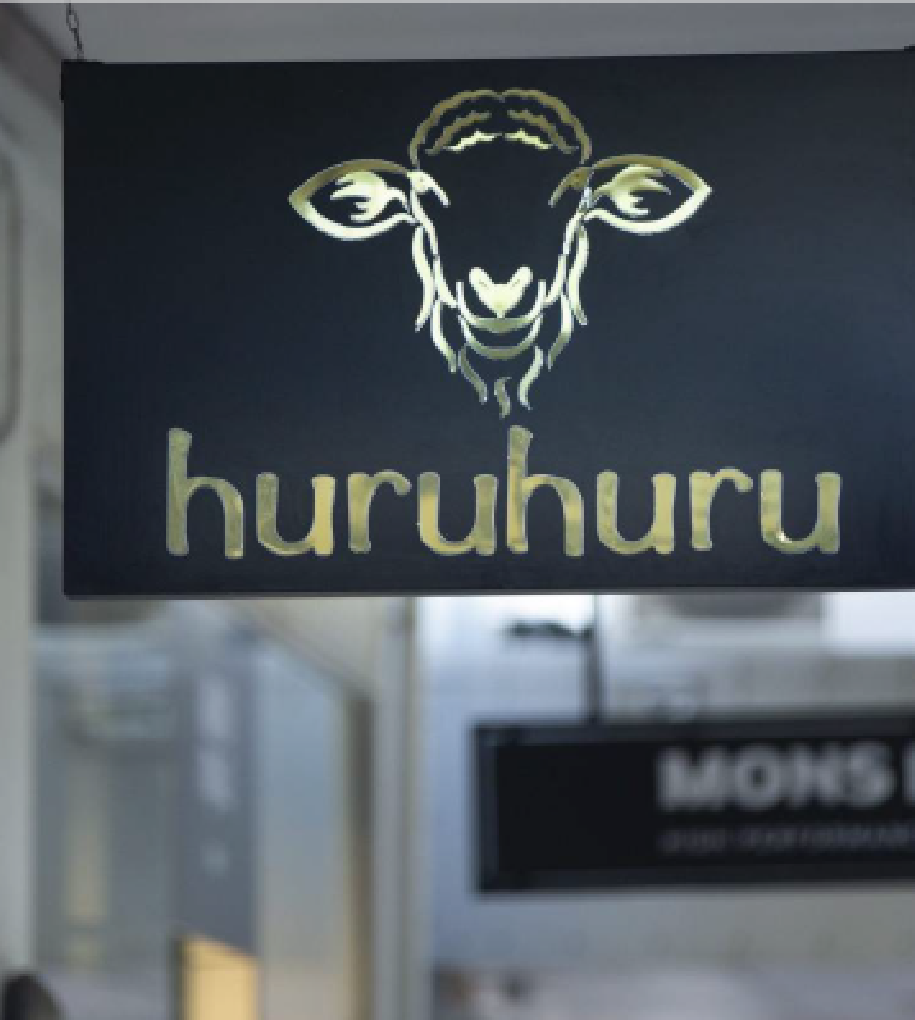
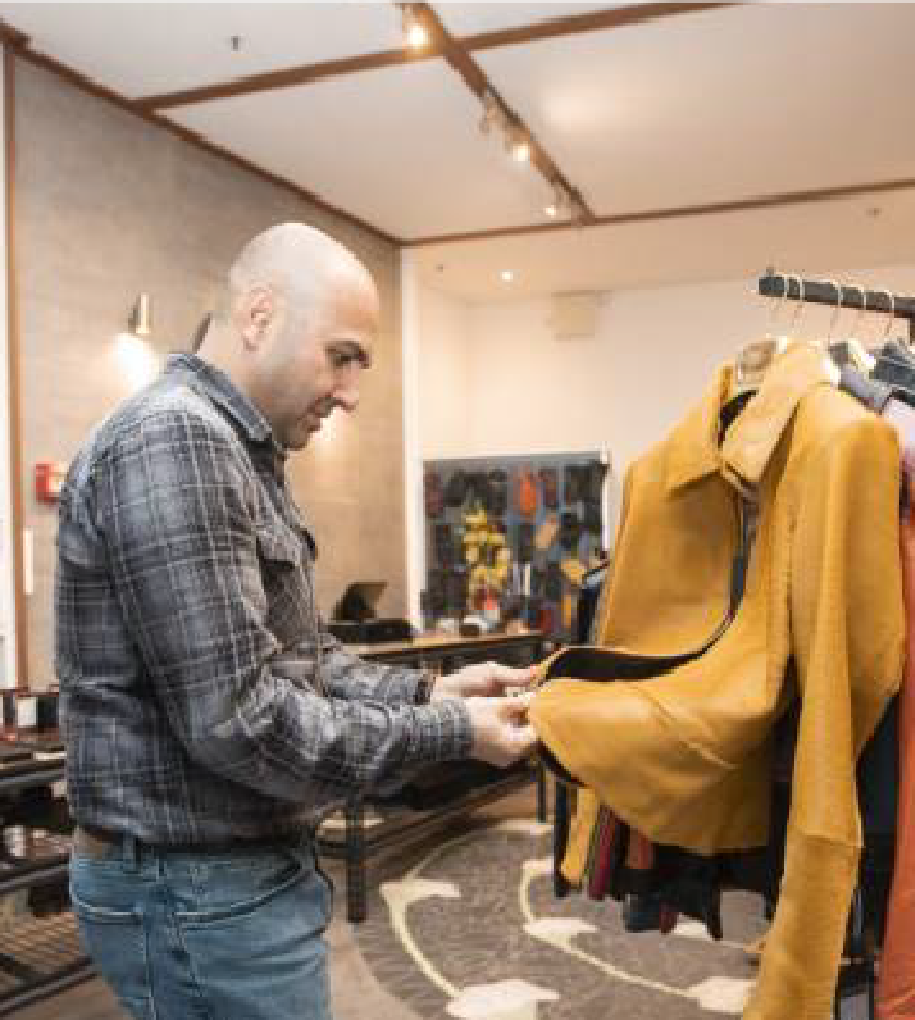
But Te Taura Whiri I Te Reo Māori, the Māori Language Commission, appreciated Huruhuru because their intention was to honour the native language. They pointed out in their defence that huruhuru also means hair, feathers and fur - which is more appropriate for a leather goods brand than pubic hair. In other words, the intention to enhance the mana of Māori culture was there.
But to enhance the mana of te reo Māori and the wider community, you need to know the potential reactions from the culture you seek to draw from.
It requires a willingness to pull down our barriers and be truly open to understand that cultures have layers of meaning that may not be apparent to the casual observer. For marketers, this is a lesson we should already know. Without true insights, we are not prepared to market to our customer. We may offend, confuse or just be irrelevant to them. Hēmi Kelly, lecturer at AUT spoke on this issue when he said that it’s very easy to google search a professional Māori language consultant to assist in providing the critical awareness needed.
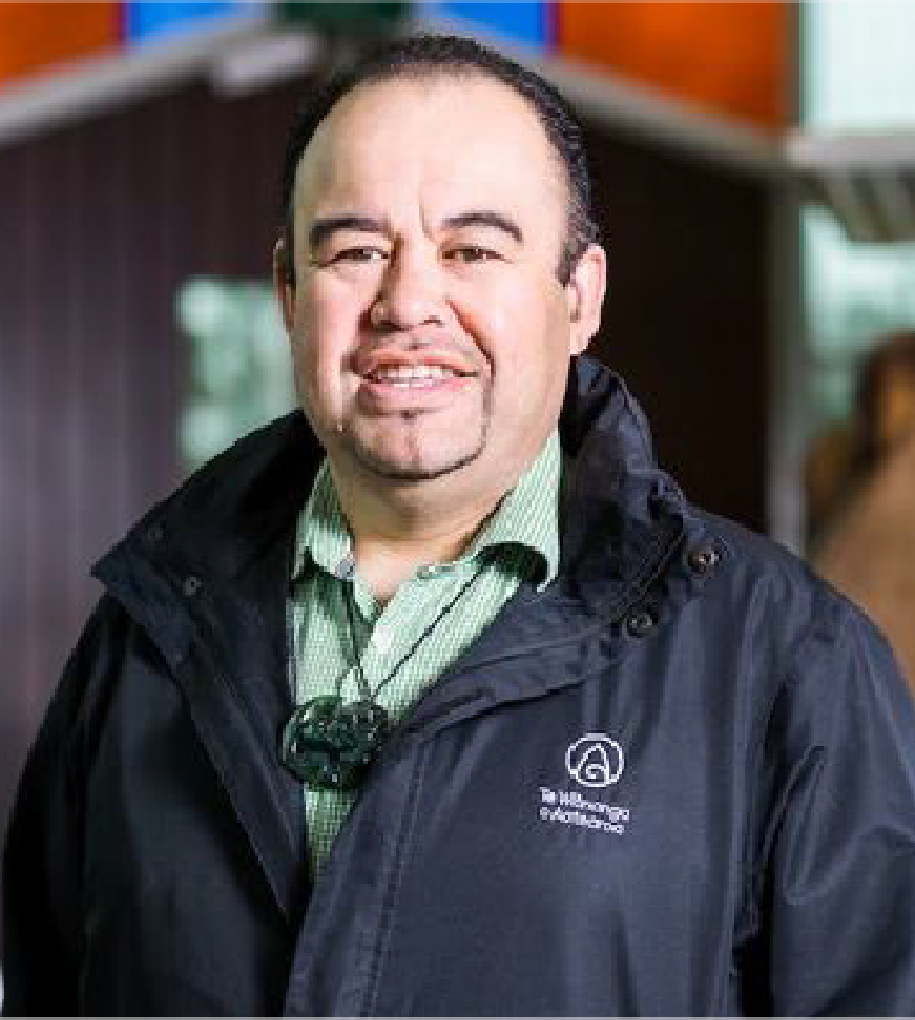
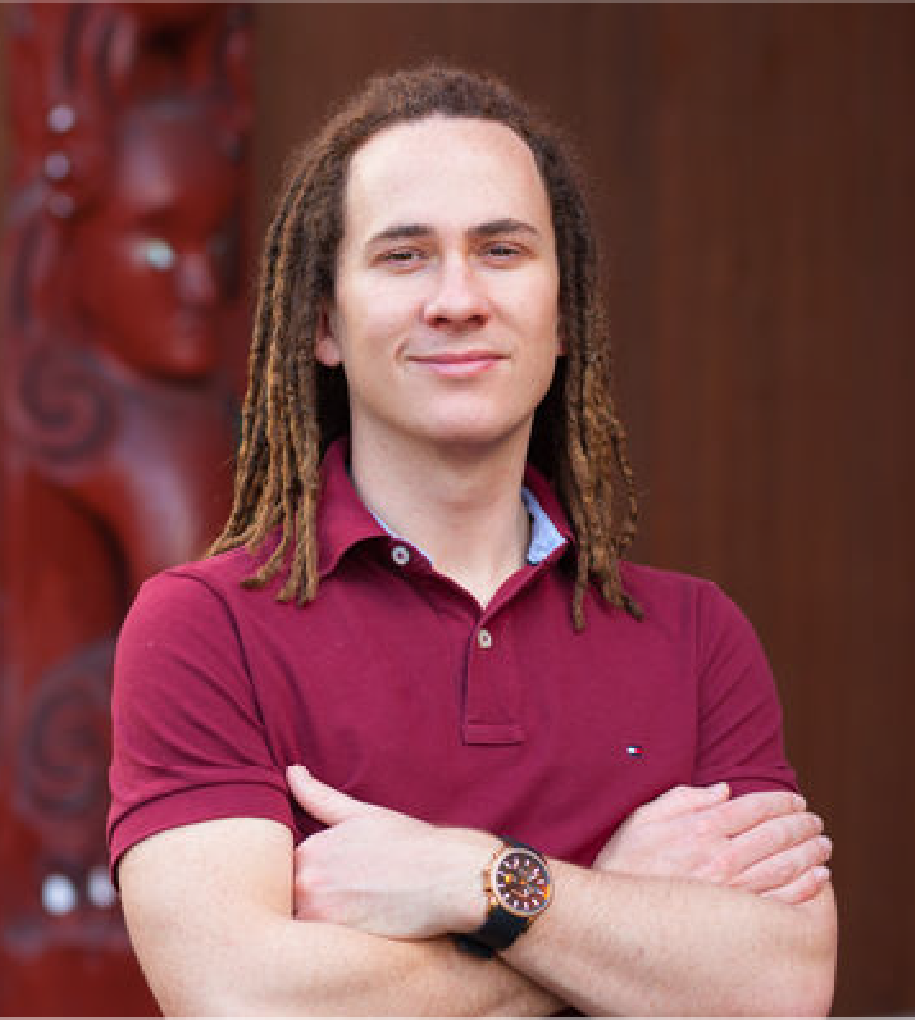
It goes both ways. Some Māori voices who criticised Huruhuru misrepresented the many meanings of huruhuru. They lacked mārama pū, or the critical awareness to see that they are making it harder for wider New Zealand to embrace a rich and beautiful culture when they rubbish people who are making an honest effort.
Te Taura Whiri I Te Reo Māori showed great leadership by sending the right message to both Māori and non-Māori communities. Tēnei ka tungou, e Paraone Gloyne.
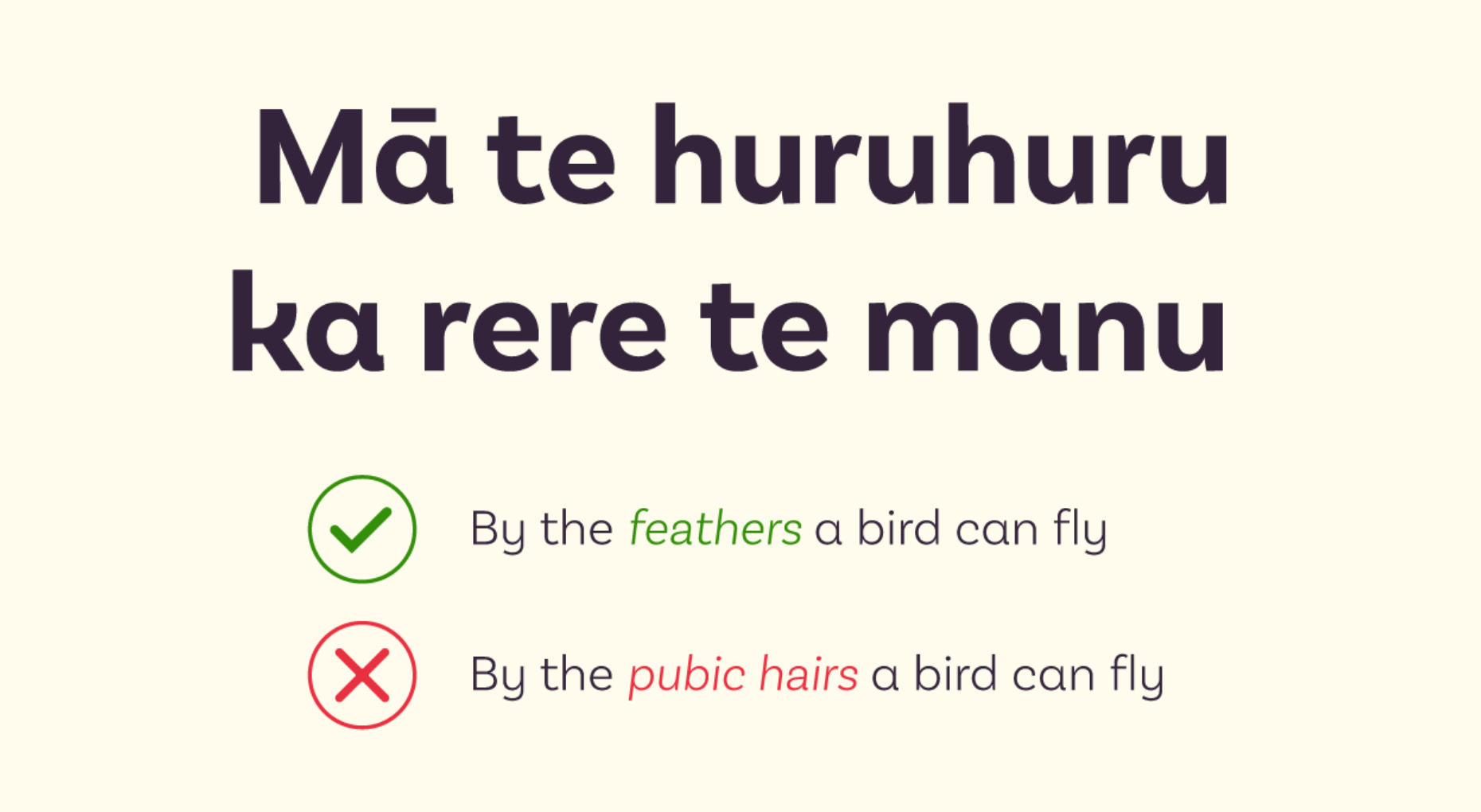
If critical awareness ensures understanding and mana guides our intentions, then manaakitanga is the final puzzle piece to ensuring we do not culturally misappropriate.
Fly was working on pro-bono project with a corporate brand and we brought into the project the critical awareness to ensure the use of te reo Māori and cultural concepts was done in a mana enhancing way. But we provided advice that within the current climate, there was a lot of resistance to corporate brands using Māori culture for commercial purposes. Particularly in this case, where the Māori consultants were not being paid.
We recommended the principle of manaakitanga, establishing a reciprocal relationship with a Māori community as an appropriate way to acknowledge the use of Māori cultural concepts as part of a commercial project.
Manaakitanga is the process of sharing, giving and enhancing relationships. Of giving more than taking. We proposed ways the client could give back to the Māori community in ways that would further their own objectives and at minimal cost. Instead, the client decided not to include any references to Māori culture. They were happy to acquire it for free, with no obligations.
But for those who wish to bring Māori culture into their marketing and branding, genuine reciprocity builds relationships of trust. And with trust, opens up pathways of understanding, which leads to mana enhancing solutions.Simply extracting something of value, without returning anything of value is what Māori are resisting. Māori want to know that if knowledge is shared, it is enhanced, not diminished.
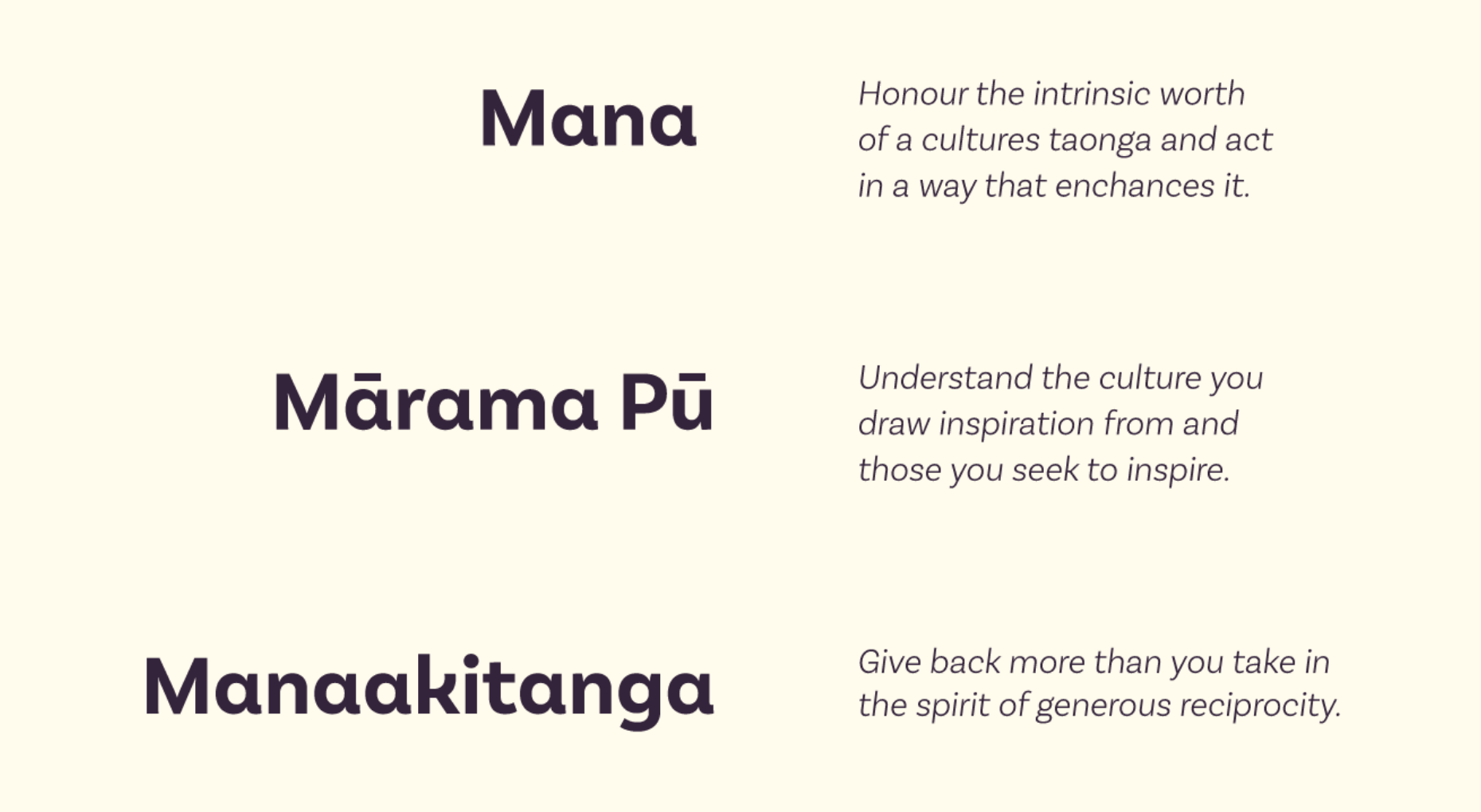
We live in a more transparent society. People can see through a corporate citizen that abuses it’s position of power and can rally to those who engage with communities with genuine integrity. They can speak louder than any previous generation to call out the fakers and the takers.
But awesomely enough, the conclusion reached here is no different than just being good at branding and good at business. Be transparent and authentic. If you do not care about te reo Māori or Māori community perspectives and values - then perhaps stay off the bandwagon.
But you should care.
So be good at business. Gain insights and understanding (mārama pū), responding with genuine solutions (manaakitanga) for the communities and cultures we wish to enhance (mana).
Noho ora mai rā.
Nā Johnson McKay
Ngāti Mahuta, Ngāti Rongomaiwahine, Ngāti Porou


